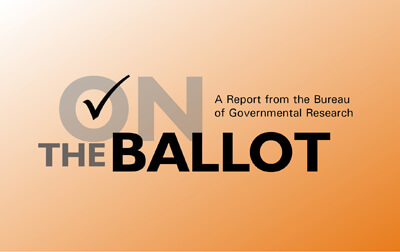
Our Views: The Times-Picayune makes these recommendations on parish tax proposals
By Staff Editorial
Source: The Times-Picayune | The New Orleans Advocate
April 16, 2022
Voters in three area parishes are being asked to enact new taxes on April 30; early voting begins Saturday. We understand that it might seem odd to ask voters to raise taxes in 2022, when governments are bulging with cash thanks to COVID-19 federal aid programs, but those one-time dollars won’t be around forever.
The Times-Picayune makes the following recommendations:
Orleans Parish Early Childhood Millage: Yes
There can be no debate over the value of investing in early childhood education. Research shows it helps kids thrive in school, prepare to enter the workforce and avoid bad outcomes in adulthood, from disease to poverty to involvement in crime. It also enables their parents fully participate in the economy.
The question is not whether it’s a good idea, but how to pay for it.
Leaders in New Orleans, where some 8,400 kids from economically disadvantaged families are waiting for spots, propose a new millage to vastly increase capacity. The 5-mill, 20-year property tax would serve 1,000 children, and would leverage a state match that could double that number to 2,000. It would also fund wraparound social services for families.
Mayor LaToya Cantrell pitched the measure as a long-term plan to tackle the city’s systemic problems.
“What we see today is based on what we have not done in the past,” she said.
The New Orleans City Council recently approved a five-year agreement with the Orleans Parish School Board and Agenda for Children, a nonprofit that administers the existing City Seats program, which is financed through the city’s general fund and serves 200 children ages three and under, a period of peak brain development (the state match provides another 200 spots). Revenue from the millage would greatly expand City Seats.
Importantly, the agreement includes “financial and programmatic reporting requirements that are essential for strong accountability,” according to the Bureau of Governmental Research, which supports the millage. Many major civic, education and business groups are also on board.
We too support passage, and hope that the agreement is extended throughout the life of the millage so that taxpayers can be assured that the money for this vital program is spent productively.
St. Tammany Parish District Attorney’s Office Sales Tax: Yes
District Attorney Warren Montgomery concedes that his proposed 0.14% sales tax is not ideal. But after St. Tammany voters rejected several tax proposals to support the entire criminal justice system, he says it’s the best available method to stabilize his office, fund prosecutions and avoid expensive litigation against the parish, which is responsible for supporting his operations but doesn’t have the general fund money to fully do so.
We agree that it’s the best of imperfect options.
Montgomery has earned the trust of voters, having upgraded technology and reduced the time it takes to process cases. He promises to share financial information regularly, which would allow public oversight. Adopting this tax would also reduce reliance on fines and fees paid by criminal defendants, an unfair practice and doesn’t produce reliable revenue.
BGR has endorsed the proposal, and notes that Montgomery plans to use most of the revenue to retain and hire staff so that his office can effectively pursue its full caseload and better protect public safety.
This is a worthy goal, one we believe St. Tammany voters share during this time of daily headlines about crime. We urge them to vote “yes.”
Jefferson Parish Sheriff’s Office Millage: Yes
In Jefferson Parish, Sheriff Joe Lopinto is asking voters to approve a new 10-year 7-mill property tax to fund law enforcement operations.
“In order to maintain (staff levels) and keep people here, I’ve got to pay them fairly,” Lopinto said.
Lopinto says it’s a matter of keeping the deputies who are responsible for the department’s success, particularly the parish’s comparatively low crime rate, on the job. He promises to use the proceeds to raise salaries by 15% to 20%, and also maintain the crime lab and update equipment.
Starting pay at the Jefferson Parish Sheriff’s Office is significantly lower than at the New Orleans Police Department and Louisiana State Police, and also below entry-level salaries at three Jefferson municipalities with their own police departments, Kenner, Gretna and Westwego. Salaries for higher ranking officers lag significantly behind NOPD and State Police, too, by about $20,000 a year to more than $30,000 for some positions.
We think it’s smart for Lopinto to right-size the office’s pay structure, so that it can remain a competitive workplace for deputies — and can continue to give parish residents the protection they say they want. We encourage voters to approve the tax.
Fair Use Notice
This site occasionally reprints copyrighted material, the use of which has not always been specifically authorized by the copyright owner. We make such material available in our efforts to advance understanding of issues and to highlight the accomplishments of our affiliates. We believe this constitutes a “fair use” of any such copyrighted material as provided for in section 107 of the US Copyright Law. In accordance with Title 17 U.S.C. Section 107, the material on this site is available without profit. For more information go to: US CODE: Title 17,107. Limitations on exclusive rights: Fair use. If you wish to use copyrighted material from this site for purposes of your own that go beyond “fair use,” you must obtain permission from the copyright owner.
